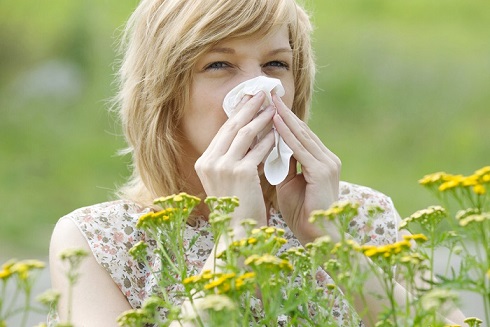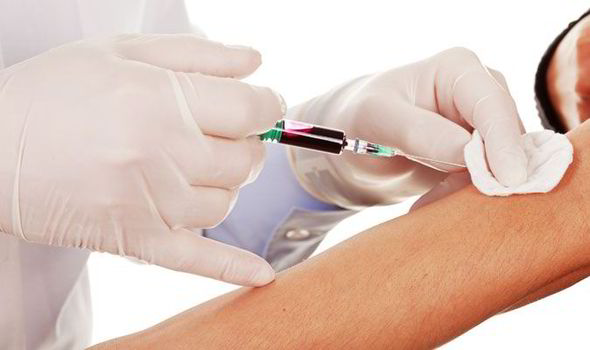Many plants – trees, grass, weeds and flowers – produce a fine powder known as pollen that is used to fertilize additional plants of the same kind. Many people have become allergic to pollen turning it into one of the most common types of allergies in the US. Those who are sensitive to pollen may only experience symptoms on occasion while others may suffer throughout the year.
Is Everyone Allergic to Pollen?
Though pollen allergy is quite common, not everyone is allergic to pollen. Allergies actually are the result of a disorder of the immune system. If someone is relatively healthy and have no problems with his/her immune system, he/she most likely will not suffer from any allergies.

If the immune system feels as if the body is in danger and being attacked by bacteria and viruses, it will work to keep it safe from becoming ill. If a person already has an issue with pollen, the immune system can look at harmless pollen as an intruder and send out the chemicals it needs to fight off the pollen. This process is considered to be an allergic reaction which usually results in a stuffy nose, sneezing and watery eyes.
With so many types of plants releasing pollen into the air, there are allergic reactions from a variety of species including:
- Birch, alder, plane, hornbeam, olive, willow, cedar, and hazelnut trees
- Ryegrass and timothy grasses
- Nettle, mugwort, sorrel, goosefoot and ragweed weeds
Who Is More Likely to Get a Pollen Allergy?
Is everyone allergic to pollen, you may still wonder? The answer is a resounding “No” but there are some things that may raise your chances of becoming allergic.
- Having members of your family who suffer from allergies or asthma can increase your risk.
- If you have developed allergies when you were a child you may outgrow them but they can also return in adulthood.
- If you have asthma or are already allergic to something other than pollen.
- Growing up in a house where others smoke raises your chances of developing allergies.
- Premature babies are born with a higher chance of getting allergies.
- Babies that are fed with a bottle rather than being breastfed have a higher chance of developing allergies.
- If a baby is born in pollen season, there is a higher chance that he or she will become allergic to pollen as they grow into childhood.
How do You Know If You Have a Pollen Allergy?
Is everyone allergic to pollen? Not really. But how can you tell if you're having pollen allergy? There're tests to diagnose an allergy: One is a skin test and the other is a blood test.
The Skin Test
 If your body is sensitive to certain allergens, your immune system will put out an antibody that is called an immunoglobulin E, or IgE, that can identify the allergen. It will join forces with mast cells which are specialized. This process occurs around the entire body as well as the skin.
If your body is sensitive to certain allergens, your immune system will put out an antibody that is called an immunoglobulin E, or IgE, that can identify the allergen. It will join forces with mast cells which are specialized. This process occurs around the entire body as well as the skin.
The skin test consists of a piece of plastic used to prick the skin with some of the allergen extract placed under the surface of the skin. If the person is sensitive to the test, histamines and chemicals used to fight off the allergy are released, causing redness, itching or minor swelling at the site.
 The Blood Test
The Blood Test
There is also a blood test that can determine what the levels of the specific IgE antibodies that are in the body. Because the allergens have several types of components, it’s not always easy confirming that a person is allergic to what he or she tested positive for. Some of the IgE antibodies don’t cause the same reaction that the actual pollen producing plants do.
How to Deal with a Pollen Allergy
Is everyone allergic to pollen? No, but if you do, there are some steps you can take to keep yourself protected as much as possible.
- When it is windy and dry outdoors, stay inside.
- Let others handle any garden work you may have when pollen counts are high.
- If you must go outdoors during a high pollen count, make sure to wear a mask. Many weather stations will feature the pollen count during their regular segment.
- Keep your windows and doors closed during pollen season.
1. Medicine
If your allergy requires more attention you may need to seek the help of some medications you can pick up at the local pharmacy, such as:
- Decongestants – Sudafed or Afrin nasal spray
- Antihistamines – Zyrtec or Benadryl
- A combination of Decongestant and Antihistamine – Claritin-D or Actifed
2. Shots
If you have an extreme case of allergies, you may want to sign up for allergy shots. The shots actually help to build up your immune system by delivering a higher and higher level of the allergen each time until your reactions are reduced or completely eliminated. This process could take from one to three years.
3. Home Remedies
If you prefer taking matters into your own hands, here are some home remedies you might want to try:
- Make sure to keep the air conditioning going in your home and vehicles.
- Flush the pollen out of your nose using a neti pot or squeeze bottle
- Certain extracts and herbs may help you such as spirulina or butterbur.
- Make sure you vacuum your home with a vacuum that uses a HEPA (high-efficiency particulate air) filter.
- Use a HEPA filter for your AC and/or dehumidifier.
- Make sure you take off your clothing right away after being outside during pollen season and putting them directly into the washing machine.
- Always dry your clothes in a dryer inside rather than on an outdoor clothes line.
